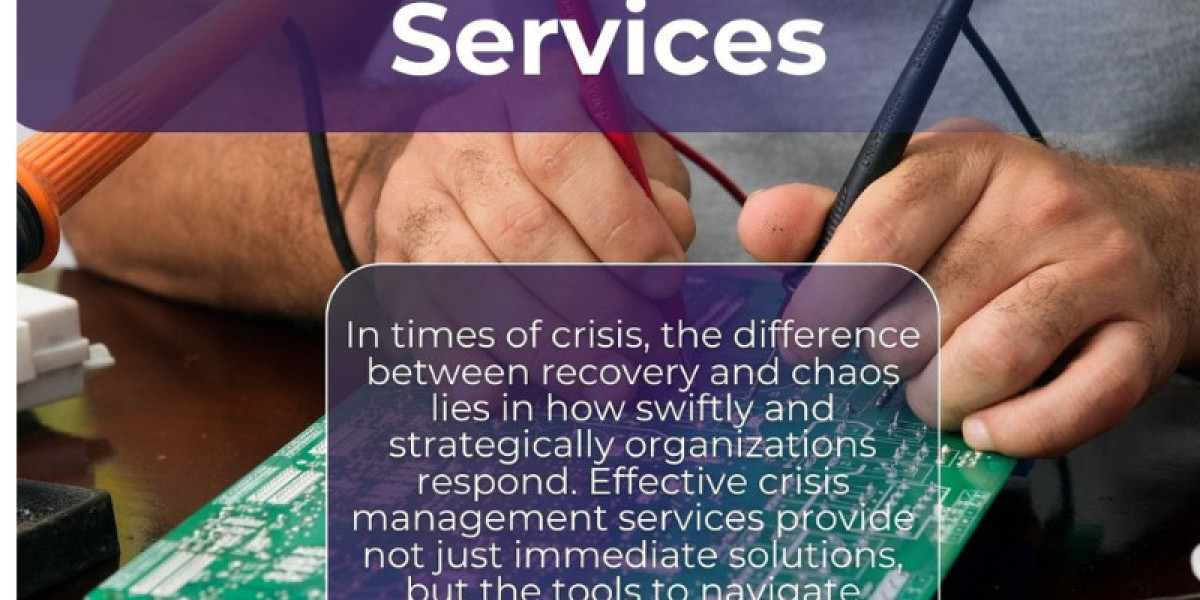In today's fast-paced business landscape, companies face various challenges that can threaten their reputation, operations, and profitability. A well-prepared crisis management strategy is essential to minimize risks and safeguard financial stability. This is where crisis management consultants play a vital role. These experts help businesses navigate unforeseen circumstances, mitigate damages, and restore public trust efficiently.
The Importance of Crisis Management in Business
Every organization, regardless of size or industry, is vulnerable to crises. From cybersecurity breaches to product recalls, legal disputes, or public relations disasters, an unexpected crisis can have lasting financial and reputational consequences. A well-structured crisis management plan can mean the difference between recovery and long-term damage.
The Cost of Poor Crisis Management
When a company mishandles a crisis, the consequences can be severe. Some common outcomes of inadequate crisis management include:
Revenue Loss: A crisis can lead to reduced customer confidence and lost sales.
Brand Damage: Negative publicity can tarnish a company’s reputation.
Legal Penalties: Non-compliance with industry regulations can result in fines and lawsuits.
Operational Disruptions: Business operations can come to a halt, impacting productivity.
Who Are Crisis Management Consultants?
Crisis management consultants are professionals specializing in identifying, assessing, and resolving crisis situations effectively. They work closely with businesses to develop proactive strategies, conduct risk assessments, and implement response plans to minimize damages.
Key Responsibilities of a Crisis Management Consultant
Risk Assessment and Analysis – Identifying vulnerabilities and assessing potential threats.
Crisis Planning and Strategy Development – Creating a detailed crisis response plan tailored to the business.
Media and Public Relations Management – Controlling the narrative and communicating effectively with stakeholders.
Employee Training and Simulation Exercises – Preparing employees to handle crisis situations.
Post-Crisis Recovery and Reputation Management – Implementing strategies to rebuild trust and financial stability.
How Crisis Management Consultants Minimize Risks
1. Identifying Potential Threats Early
Crisis management consultants conduct thorough risk assessments to detect potential threats before they escalate. By analyzing past incidents, industry trends, and company-specific vulnerabilities, they help businesses prepare for various scenarios.
2. Developing Comprehensive Crisis Response Plans
A well-structured crisis response plan outlines the necessary steps a company should take when a crisis arises. Consultants develop these plans with:
Clear roles and responsibilities for employees and executives.
Communication strategies to maintain transparency.
Alternative solutions to keep business operations running.
3. Enhancing Communication Strategies
Effective communication during a crisis is crucial to managing stakeholder expectations. Crisis management consultants ensure that companies:
Maintain credibility by sharing timely and accurate updates.
Use appropriate channels such as press releases, social media, and direct customer communication.
Engage in damage control by responding to misinformation and media speculation.
4. Legal and Compliance Support
Regulatory violations can lead to severe penalties. Consultants help businesses comply with local, national, and international regulations, reducing legal risks. They provide guidance on:
Data protection laws.
Crisis-related compliance procedures.
Ethical business practices.
5. Training Employees for Crisis Preparedness
Businesses that train their employees on crisis management protocols experience less disruption during emergencies. Consultants conduct:
Workshops and seminars on crisis handling.
Simulation exercises to test employee response times.
Leadership training to prepare executives for crisis decision-making.
How Crisis Management Protects Your Bottom Line
1. Preventing Financial Loss
Crises can drain a company’s financial resources due to fines, legal fees, and lost revenue. Consultants help businesses implement cost-effective solutions to minimize financial exposure.
2. Preserving Brand Reputation
A damaged reputation can be hard to rebuild. Crisis management consultants develop reputation management strategies to ensure businesses maintain customer trust and loyalty even in challenging times.
3. Ensuring Business Continuity
By developing robust contingency plans, consultants help organizations continue operations without major disruptions. This prevents productivity losses and keeps revenue streams steady.
4. Strengthening Stakeholder Relationships
Shareholders, investors, and customers expect companies to handle crises effectively. A structured crisis response reassures stakeholders that the company is resilient and capable of overcoming challenges.
The Role of Technology in Crisis Management
With the advancement of technology, crisis management has evolved. Consultants use digital tools to:
Monitor social media for crisis signals.
Automate emergency notifications.
Enhance cybersecurity measures to prevent data breaches.
Choosing the Right Crisis Management Consultant
Factors to Consider:
Experience and Industry Knowledge – Look for consultants with expertise in your sector.
Proven Track Record – Check case studies and client testimonials.
Comprehensive Service Offerings – Ensure they provide risk assessment, training, and recovery support.
Strong Communication Skills – Effective crisis consultants excel in public relations and media management.
Conclusion
A well-prepared crisis management strategy is essential for business survival. Crisis management consultants play a crucial role in identifying risks, developing response plans, and ensuring smooth recovery. By investing in professional crisis management, businesses can protect their bottom line, maintain their reputation, and continue to thrive in challenging times.
Call to Action
If you're looking to safeguard your business from unexpected challenges, consider working with a trusted crisis management consultant today. Being proactive today can save your company from major setbacks tomorrow.









